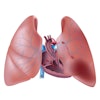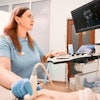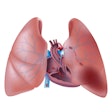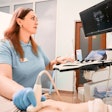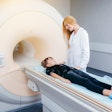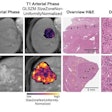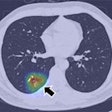Dear AuntMinnie Member,
Spring conference season continues, with the American Roentgen Ray Society (ARRS) taking center stage for its annual confab this week in Washington, DC.
Features editor Wayne Forrest is on hand and filing daily reports, such as this article on how to set up a peer review program to assess radiologist performance. Presenters from the University of Toronto surveyed their physicians on their preferences for peer review; not surprisingly, most preferred a program in which review was conducted anonymously.
Check back throughout the week for more updates from ARRS 2013, or sign up on our Twitter page and use the hashtag #ARRS2013 to follow the meeting in real-time.
Study criticizes CAD
In other news, a new study from California, published yesterday in the Annals of Internal Medicine, is taking computer-aided detection (CAD) for breast screening to task, questioning its effectiveness.
This latest study from CAD skeptic Dr. Joshua Fenton analyzes the short-term outcomes of women who received mammograms, some at sites using CAD and others at sites that didn't. Fenton's team found that the women who had CAD performed on their images had higher rates of ductal carcinoma in situ, which the researchers said was a sign that some women were being "overdiagnosed." There was no difference in detection rates for invasive cancer, they said.
Learn more about the study by clicking here, or visit our Advanced Visualization Digital Community at av.auntminnie.com.
Tragedy in Boston
Finally, our thoughts and prayers go out to the victims of the terrible tragedy yesterday at the Boston Marathon. If there is any silver lining to this senseless act, it's that the bombings occurred near the finish line, where many healthcare professionals and first responders were stationed to assist runners completing the arduous race. Their prompt action has surely saved many lives, and we thank them for their contributions.

